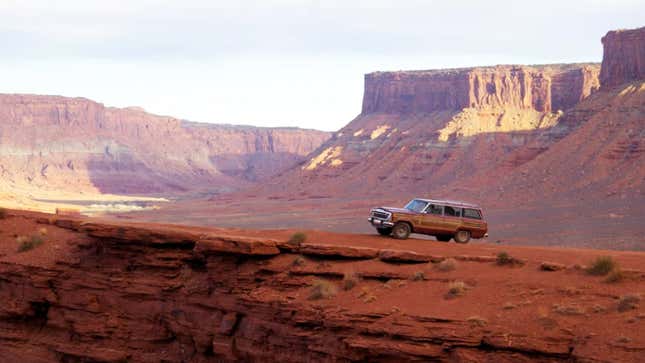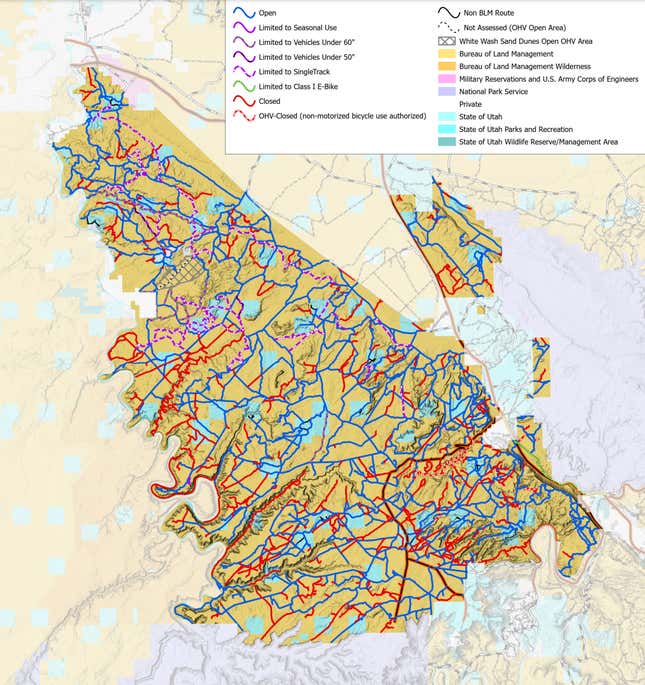
Moab is arguably the most important venue in American off roading, and this month the federal Bureau of Land Management has closed 317 of the area’s 812 trail miles to motorized vehicles. The closure takes effect this Saturday, October 28, closing ORV trails to the thousands of off-roaders who frequent the park. The closure is the punctuation on years of fighting between environmental protection groups, off-roaders, and federal employees, marking a solid victory for those hoping to protect the fragile desert ecosystem.
The Labyrinth Rims Gemini Bridges Travel Management Area is made up of about 300,000 acres of protected public land in Grand County, Utah. Some trails are marked for mixed use, while others are specifically off-highway vehicle trails, bike-only, and hike-only. Some of the OHV trails are designated only for smaller non-truck vehicles like side-by-sides as well. Below you can see a map from the BLM that shows which trails will be closed, marked in red.

According to the Bureau of Land Management, it did its best to minimize impact to resources and conflicts with land users. The trails remaining open are prioritized to minimize impact on the ecosystem and environment, choosing routes that are “generally well used and defined, and due to frequent or long-standing uses, additional impacts to natural and cultural resources, as well as user conflicts, were determined unlikely to occur.”
Some off-roaders have bemoaned the loss of their playgrounds, however. Most vocally opposed has been Patrick McKay of the Colorado Offroad Trail Defenders, a non-profit advocacy group for trail driving. When the ruling was announced in September, he took to Facebook to voice his displeasure and threaten legal action against the Bureau of Land Management.
There’s no other way to say this. This travel plan is the worst defeat motorized recreation has suffered in decades. SUWA [the Southern Utah Wilderness Alliance] won. Moab is lost. Almost every major trail west of Moab is closed, including Day Canyon Point, Hey Joe Canyon, Mashed Potatoes, Ten Mile Canyon, Hell Roaring Canyon, Mineral Canyon, Hidden Canyon, 7-Up, two of the three overlooks on Deadman Point, and many more. Poison Spider, Golden Spike, 7 Mile Rim, 3D, Buttes and Towers, Hell Roaring Rim, and Metal Masher will stay open but that’s about it.
Who even wants to go to Moab if you can’t drive Hey Joe Canyon or Mashed Potatoes? I guess at least Metal Masher is still open.
For its part, the BLM release claims that 96 percent of the trails used for Easter Jeep Safari remain open and available for off-highway vehicle use. Largely the fight has been over the fragility of the Green River basin, as off roading has grown in popularity over the last few years. This new map of allowed trails significantly reduces the number of allowed river crossings, and trails within 100 yards of the river itself.
What will the off-road community become without access to Hell Roaring Canyon?